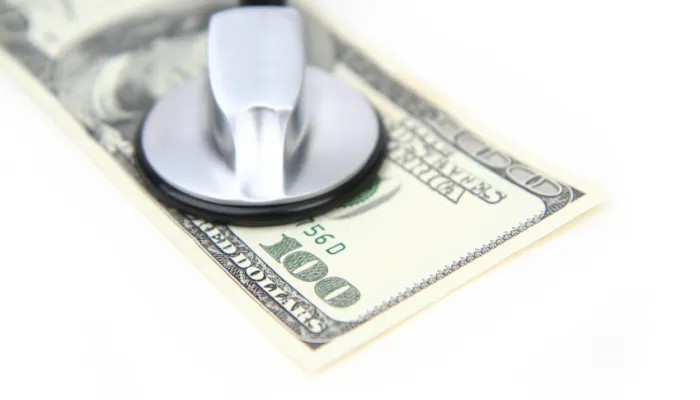Reducing Drug Prices and the Tax Gap
As lawmakers negotiate a possible reconciliation bill, they should look to offsets from the House-passed Build Back Better Act (BBB) to help fund new spending, fight inflation, and reduce deficits. BBB’s prescription drug savings and Internal Revenue Service (IRS) tax enforcement policies alone would generate roughly $400 billion of savings through 2031 and $500 billion through 2032 without raising taxes and while reducing out-of-pocket health care costs.
Federal Savings from Enacting Drug and Tax Enforcement Provisions in Build Back Better Act
| 2022-2031 | 2022-2032 | |
|---|---|---|
| Increase IRS Funding | -$80 billion | -$80 billion |
| Improved Tax Compliance from IRS Funding | $200 billion | $230 billion |
| Limit Prescription Drug Price Growth to Inflation | $85 billion | $100 billion |
| Repeal Trump-Era Drug Rebate Rule | $120 billion | $150 billion |
| Negotiate Select Drug Prices and Re-design Part D Formula | $75 billion | $100 billion |
| Total Deficit Reduction | $400 billion | $500 billion |
| Memo: Reduction in National Health Expenditures | ~$500 billion | ~$600 billion |
Source: Committee for a Responsible Federal Budget calculations based on Congressional Budget Office data.
The BBB proposed to increase IRS funding by $80 billion through 2031, including $45 billion for enforcement, $27 billion for operations support, $5 billion for technology modernization, and $2 billion for taxpayer service. Regardless of party, every single past President from Ronald Reagan to Donald Trump has supported increasing IRS funding as a way to improve revenue collection and reduce the $630 billion annual tax gap.
As we’ve shown before, IRS funding has a very high return on investment, generating more than $2.50 of revenue for every dollar of spending. It is one of the few policies that truly does pay for itself, and it does so by ensuring people pay the taxes they already owe rather than raising new taxes.
Assuming $80 billion of new funding was appropriated immediately and spent through the end of 2031, we estimate it would generate roughly $200 billion of revenue through 2031 and $230 billion through 2032. Net of new spending, this would mean $120 billion of net revenue collection through 2031 and $150 billion through 2032.

BBB also included several policies aimed at reducing prescription drug prices, including allowing limited Medicare drug price negotiations, requiring rebates on drug price increases higher than inflation, and repealing the Trump-era drug rebate rule that will go into effect in 2028. We wrote about these policies in more detail here.
Together, we estimate that these policies would reduce federal budget deficits by roughly $280 billion through 2031 and $350 billion through 2032 (these figures are lower than originally scored primarily because the rebate rule has since been delayed one year in the recently passed bipartisan gun legislation).
These prescription drug policies would also reduce premiums and cost sharing for households and businesses, as well as Medicaid spending and other costs for states. Based in part on data and estimates from the Medicare Chief Actuary and the Congressional Budget Office, our very rough estimates find that these policies would reduce national health expenditures (NHE) by a total of $600 billion through 2032.
Specifically, we estimate over $200 billion of NHE reductions from drug price negotiations, a similar amount from capping price growth at inflation, roughly $100 billion of lower NHE from repealing the drug rebate rule, and nearly as much from the bill's redesign of the Part D formula. We estimate that $350 billion of those gains would accrue to the federal government, while Medicare beneficiaries would enjoy $130 billion less of premiums and cost-sharing, other households and businesses would pay $100 billion less in premiums and out-of-pocket costs, and States would save roughly $20 billion. These estimates are extremely rough, and actual effects could differ.

Much more could and should be done to lower prescription drug costs and improve tax compliance, not to mention increase revenue and reduce spending in other ways. But the prescription drug and IRS enforcement provisions in BBB alone would make meaningful progress toward reducing deficits while also improving enforcement of the tax code and lowering health care costs for Americans. These policies should be included in the final version of any reconciliation bill, or else considered in separate legislation.

